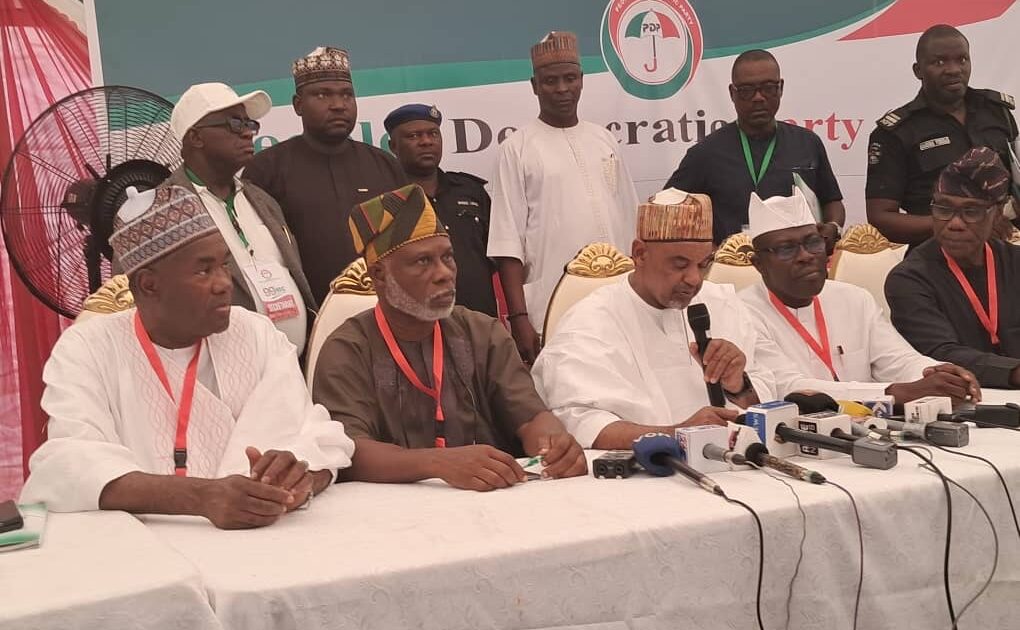The Peoples Democratic Party (PDP) has vehemently denounced what it perceives as the All Progressives Congress (APC)’s insidious scheme to establish a one-party totalitarian state in Nigeria. This accusation stems from recent political developments, including perceived biases within the judiciary and electoral bodies, and alleged attempts to suppress opposition voices and manipulate the democratic process. The PDP argues that these actions, if left unchecked, will erode the foundations of Nigeria’s democracy and plunge the nation into an era of autocratic rule reminiscent of dictatorial regimes. They cite instances of alleged electoral malpractice, intimidation of opposition members, and the stifling of free speech as evidence of the APC’s overarching plan to dismantle the multi-party system. The PDP calls upon all Nigerians, civil society organizations, and the international community to rise up and resist these alleged anti-democratic maneuvers.
The PDP’s concerns center around the perceived erosion of democratic institutions and norms under the APC’s leadership. They argue that the independence of key institutions like the Independent National Electoral Commission (INEC) and the judiciary has been compromised, tilting the playing field in favor of the ruling party. This, they contend, has created an environment of fear and uncertainty, where opposition parties are unable to effectively compete and where the voices of dissent are systematically silenced. The PDP highlights instances where election results have been disputed, court judgments perceived as partisan, and opposition figures targeted with politically motivated prosecutions. They warn that such actions not only undermine the credibility of democratic processes but also create a breeding ground for instability and conflict.
Furthermore, the PDP accuses the APC of employing tactics designed to stifle freedom of expression and assembly. They point to instances where protests have been met with excessive force, journalists harassed and intimidated, and social media platforms monitored and censored. This alleged clampdown on fundamental freedoms, according to the PDP, is a clear indication of the APC’s intent to create a totalitarian state where dissenting opinions are suppressed and the ruling party’s narrative reigns supreme. They argue that a healthy democracy requires a vibrant and unfettered public sphere where citizens can freely express their views without fear of reprisal. The PDP asserts that the APC’s actions are not only unconstitutional but also a betrayal of the democratic principles upon which Nigeria is founded.
In response to what it considers an existential threat to democracy, the PDP has vowed to mount a robust resistance against the APC’s alleged totalitarian agenda. They pledge to employ all legal and constitutional means to defend the principles of multi-party democracy, including engaging in peaceful protests, pursuing legal challenges to perceived injustices, and mobilizing citizens to hold the government accountable. The PDP emphasizes the importance of a united opposition front to effectively counter the APC’s alleged power grab and calls upon all like-minded parties and individuals to join forces in safeguarding Nigeria’s democratic future. They also appeal to the international community to exert pressure on the Nigerian government to uphold democratic norms and respect human rights.
The PDP’s resistance strategy encompasses a multi-pronged approach, including legal challenges to disputed election results and alleged human rights violations, mobilization of grassroots support through rallies and public awareness campaigns, and engagement with international organizations and democratic institutions to draw attention to the deteriorating political situation in Nigeria. They are committed to utilizing every available platform to expose what they describe as the APC’s undemocratic practices and to rally support for the defense of democratic values. The PDP believes that a sustained and coordinated effort, involving all stakeholders, is crucial to thwart the APC’s alleged totalitarian ambitions and ensure the survival of democracy in Nigeria.
The PDP’s accusations against the APC paint a stark picture of a nation at a crossroads, grappling with fundamental questions about its democratic future. While the APC maintains that it is committed to democratic principles and accuses the PDP of engaging in fear-mongering and political grandstanding, the PDP’s concerns, nonetheless, raise critical questions about the direction of Nigerian politics. The unfolding events will undoubtedly shape the trajectory of Nigeria’s democracy and determine whether it progresses towards greater inclusivity and accountability or descends into an era of authoritarian rule. The international community and concerned Nigerians must remain vigilant and actively engaged in safeguarding the hard-won democratic gains of the past. The future of democracy in Nigeria hangs in the balance, and the outcome of this ongoing struggle will have far-reaching implications for the entire region.














